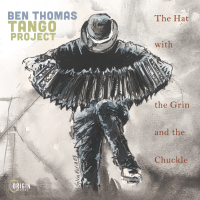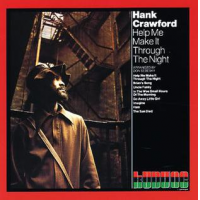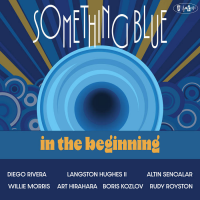Home » Jazz Articles » Liner Notes » Wycliffe Gordon: What You Dealin' With?
Wycliffe Gordon: What You Dealin' With?

Trummy Young
tromboneb.1912

Kid Ory
trombone1886 - 1973

Jack Teagarden
trombone1905 - 1964

J.J. Johnson
trombone1924 - 2001
Lawrence Brown
tromboneb.1907
A native of Georgia, Gordon was born in 1967 and was first introduced to music by a father who "studied classical music and played classical music around the house when we were young." By the age of 12, Gordon had begun his trombone studies and within a few years was exploring the origins of jazz. "I had a great aunt who passed away and amongst her things that were given to the family was a five record collection of jazz and I got a chance to hear the recordings and that was my introduction to jazz."
During his college years at Florida A & M University, Gordon struck up a relationship with

Wynton Marsalis
trumpetb.1961
In 1989, Gordon became a full-fledged member of the Marsalis camp and his musical fortunes have continued to blossom ever since. A veteran of the Lincoln Center Jazz Orchestra, Gordon works extensively around New York and is a respected educator now serving as associate professor of jazz studies at Michigan State University. What You Dealin' With, Gordon's sophomore effort for Criss Cross and a substantial follow-up to The Gospel Truth (Criss 1192), gives us further insights into the trombonist's multifaceted world.
As for Gordon's partners on the session, two of the lead players are peers from his tenure with the Lincoln Center Jazz Orchestra.

Victor Goines
woodwindsb.1961

Ryan Kisor
trumpetb.1973
Also appearing on several tracks is tenor saxophonist Herb Harris.

Marcus Roberts
pianob.1963
Gordon is particularly vociferous when talking about the two up and coming talents who make up his rhythm section. He had encountered the nascent bassist Zach Pride while working with

Winard Harper
drumsb.1962

Rodney Green
drums
Greg Osby
saxophoneb.1960

Christian McBride
bassb.1972

Betty Carter
vocals1929 - 1998

Roy Hargrove
trumpet1969 - 2018
The first of four classics from the Ellington cannon, In a Mellow Tone introduces us to the tenor saxophone of Herb Harris, who makes it clear that he's mastered the muscular resonance of such swing tenor men as

Illinois Jacquet
saxophone, tenor1922 - 2004

Buddy Tate
saxophone, tenorb.1913

Ben Webster
saxophone, tenor1909 - 1973
Speaking of the late

Al Grey
trombone1925 - 2000

Benny Golson
saxophone, tenor1929 - 2024

Clifford Brown
trumpetb.1930
A tested blowing vehicle, Blue 'n' Boogie moves at half the customary tempo at first, before kicking things into a spirited swing and giving way to solo spots for Kisor, Harris (on tenor), Gordon, Goines (on soprano sax) and Green. "I always want to play the blues and I just kind of played with the time," declares Gordon. "It was a chance to blow a little bit and play around with the melody."
Speaking of Cottontail, Gordon proclaims unequivocally, "That's one of my favorite tunes by Duke and one of my favorite forms to play on-rhythm changes." Goines is heard on soprano saxophone and Gordon decides to step up to the mike for a little vocalizing in his own inimitable manner.
"I wanted to do a medley on the C minor blues by two different composers," Gordon explains and so we end up with a medley of Ellington's Stevie and John Coltrane's Mr. P.C. Beyond their harmonic similarities, the combination seems logical, considering the ties that Ellington had made with Coltrane when he cut Stevie in 1962 on the quintessential Impulse release

Duke Ellington
piano1899 - 1974

John Coltrane
saxophone1926 - 1967
Pretty Little Girl adds a bit of rhythmic variety and Gordon chose to utilize its waltz tempo "because that always brings a different vibe to a record." There's further relevance to the song's title, as the trombonist makes clear. "I have three boys and I've always wanted a little girl, so I wrote the song about the little girl I will have or probably never will have." Goines and Gordon interact in a highly conversational manner, with solo space also afforded to bassist Pride.
Another standby from the Duke's pen, Mood Indigo takes on a different hue as a duo for bass and trombone. Explaining the genesis of this unique approach, Gordon says, "I've played that a couple times with

Rodney Whitaker
bassb.1968

Reginald Veal
bassKnown for decades as a high-speed flag waver utilized at jam sessions for separating the men from the boys, Cherokee moves through three different keys in addition to shifting into high gear after a deceptively relaxed beginning. "It's a pretty challenging tune to play on for anyone, but I wanted to do it a little differently." Gordon, Kisor, and Green each speak their piece before the tempo comes back down and things reach a conclusion.
What You Dealin' With may be the most overt sign of Gordon's desire to break out of the mold and explore more variegated pastures. It was his goal to have "elements of different things in it-funk or the church sound and then when Ryan plays his solo he goes into the changes to "Impressions." Asking the proverbial musical question, Gordon elaborates by saying that "the question is what is each musician dealing with and at different times we all deal with different things. So even though we're jazz musicians, sometimes we like to dance. And not just swing dance, we may want to listen to Parliament Funkadelic or the Ohio Players or something that we all grew up with as adolescents."
As a conclusion, Bone Abstractions is a quick and dirty lesson in the trombone's musical capabilities, with Gordon displaying great dexterity and fluency while throwing in some textural nuances via the use of multiphonics. This technique involves "playing one note and humming another note at the same time." As Gordon further explains, "What I did was I messed around a little bit and sang major triads. Essentially that's just a bunch of different things I'll play through or attempt during the course of the night or even a solo, like the sound of the didgeridoo, or the multiphonics."
It may be the last two numbers that most clearly point in the direction of Gordon's next musical endeavors. "Something that I've always wanted to do is to record the music I like to play, like a gospel record with a choir singing. I would like to record everything I like to listen to." Not a bad idea and certainly a great teaser for musical vistas on the distant horizon.
Liner Notes copyright ? 2025 C. Andrew Hovan.
What You Dealin' With? can be purchased here.
Contact C. Andrew Hovan at All About Jazz.
An avid audiophile and music collector, Chris Hovan is a Cleveland-based writer / photographer / musician.
Track Listing
In A Mellow Tone; I Remember Al; Blue 'N' Boogie; Cottontail; Stevie - Mr. P.C.; Pretty Little Girl; Mood Indigo; Cheroke; Bone Abstractions; What You Dealin' With.
Personnel
Wycliffe Gordon
tromboneRyan Kisor
trumpetVictor Goines
woodwindsHerb Harris
saxophoneRodney Green
drumsAlbum information
Title: What You Dealin' With? | Year Released: 2001 | Record Label: Criss Cross
Tags
Comments
PREVIOUS / NEXT
Wycliffe Gordon Concerts
Jazzfest White Plains
ArtsWestchester's Arts ExchangeWhite Plains, NY
Jazzfest White Plains
ArtsWestchester's Arts ExchangeWhite Plains, NY
Jazzfest White Plains
ArtsWestchester's Arts ExchangeWhite Plains, NY
Jazzfest White Plains
ArtsWestchester's Arts ExchangeWhite Plains, NY

Wycliffe Gordon
Nassau Valley Vineyards-WineryLewes, DE
Suncoast Jazz Festival
Sheraton Sand Key ResortClearwater, FL
Suncoast Jazz Festival
Sheraton Sand Key ResortClearwater, FL
Suncoast Jazz Festival
Sheraton Sand Key ResortClearwater, FL
Support All About Jazz
 All About Jazz has been a pillar of jazz since 1995, championing it as an art form and, more importantly, supporting the musicians who make it. Our enduring commitment has made "AAJ" one of the most culturally important websites of its kind, read by hundreds of thousands of fans, musicians and industry figures every month.
All About Jazz has been a pillar of jazz since 1995, championing it as an art form and, more importantly, supporting the musicians who make it. Our enduring commitment has made "AAJ" one of the most culturally important websites of its kind, read by hundreds of thousands of fans, musicians and industry figures every month.






 Buy Now
Buy Now



















